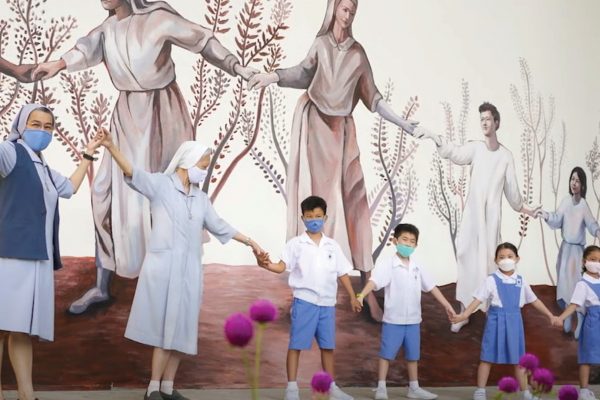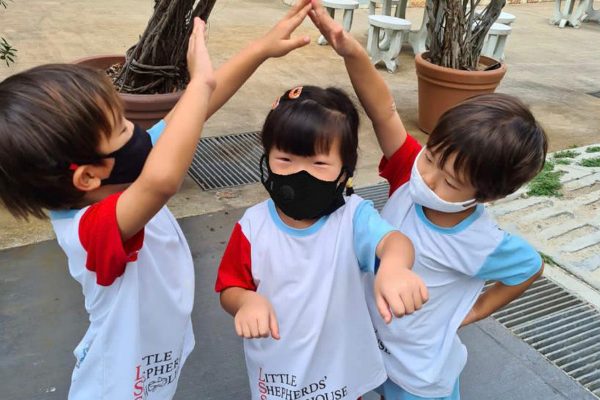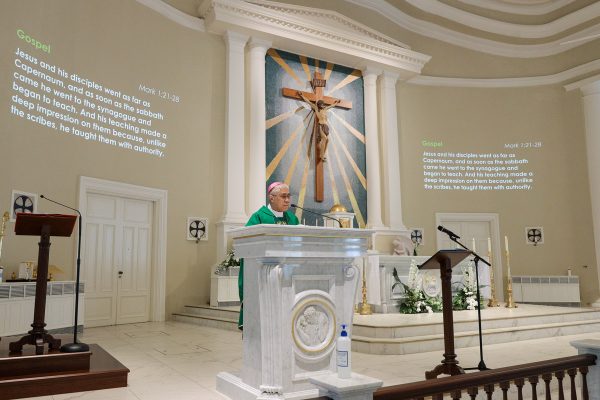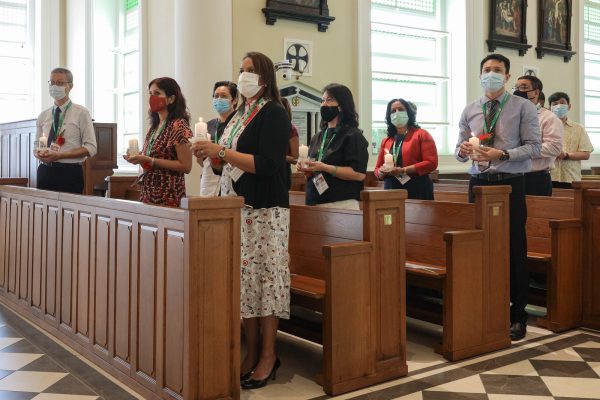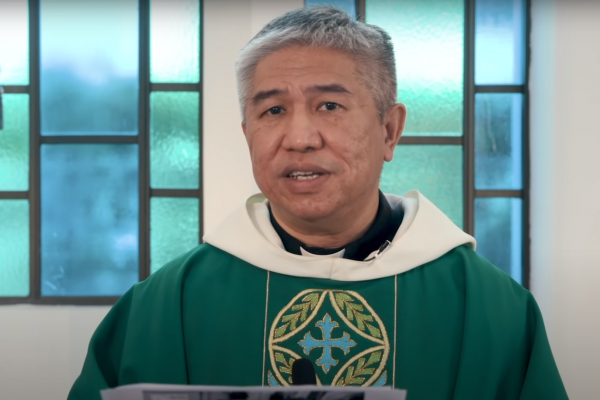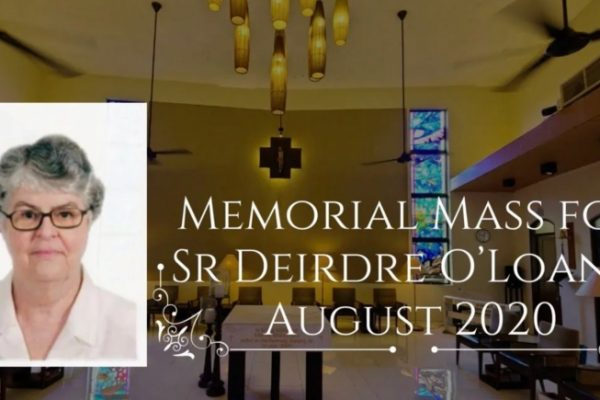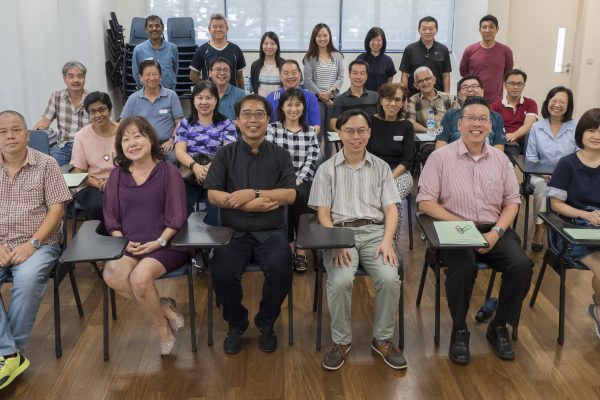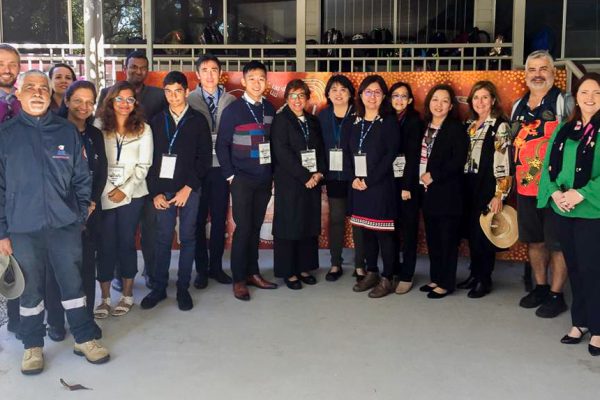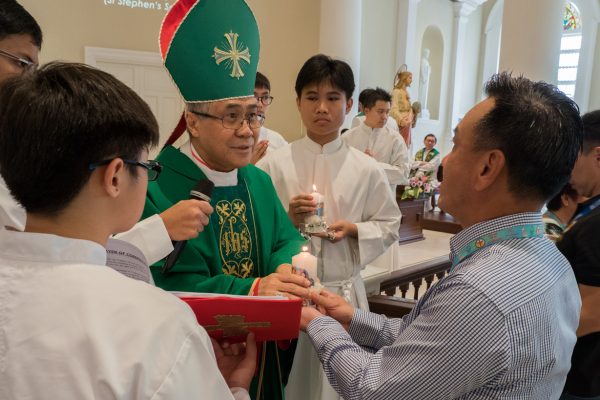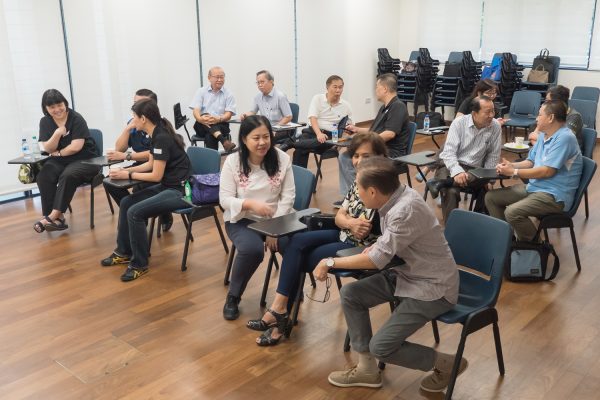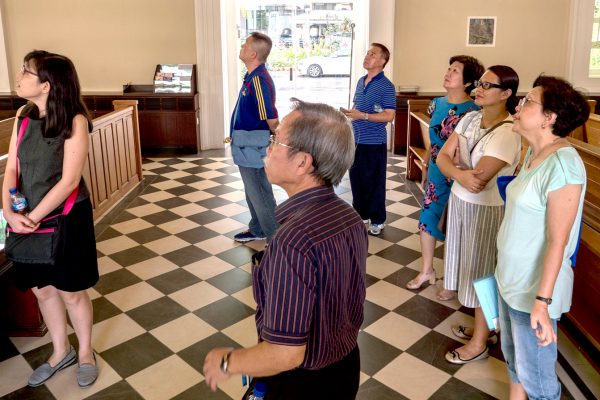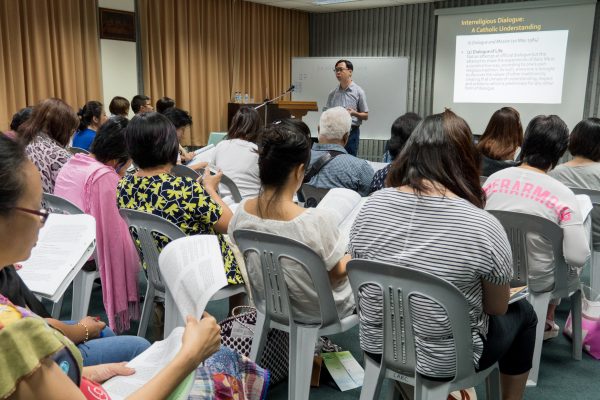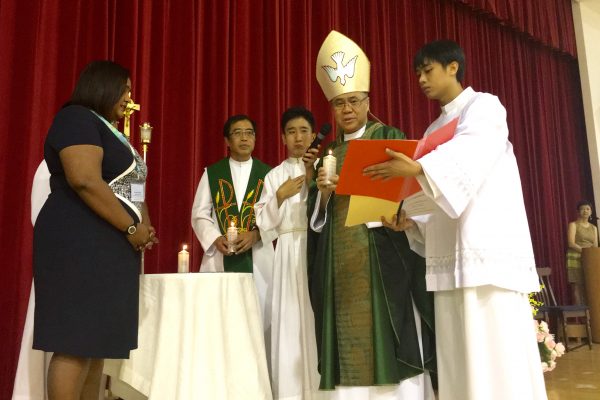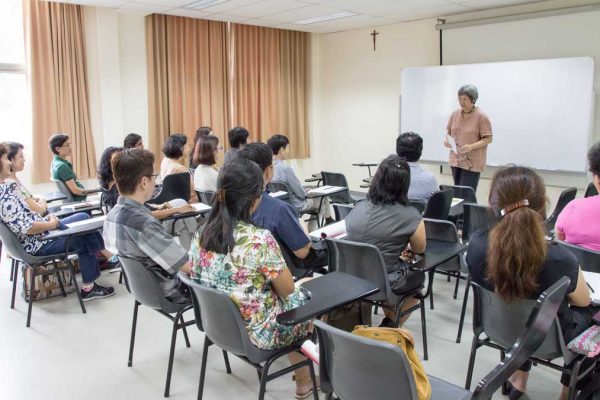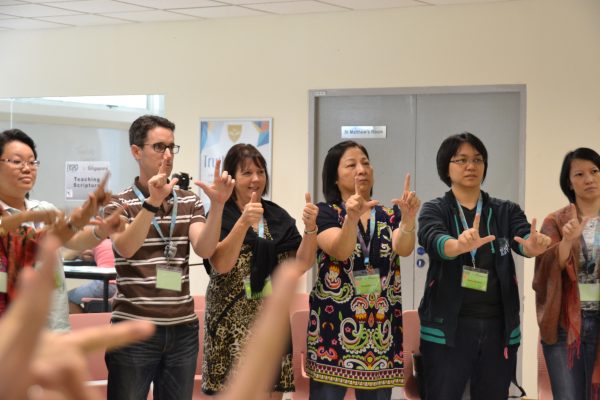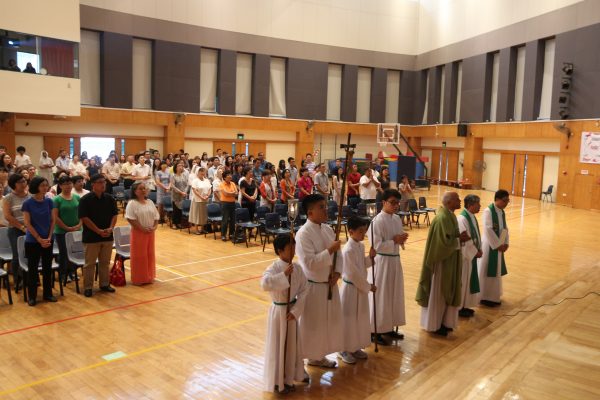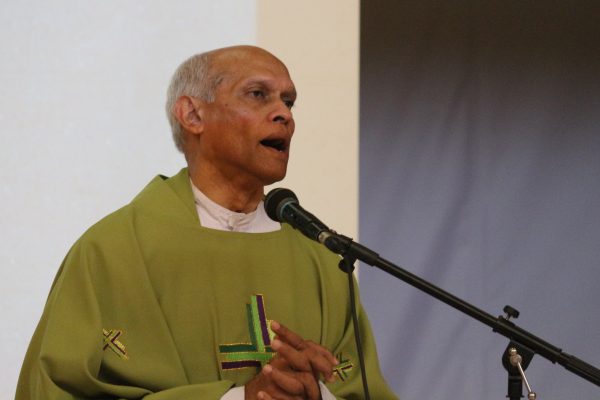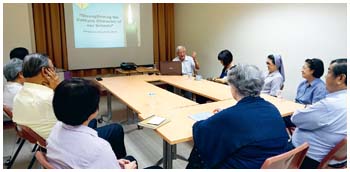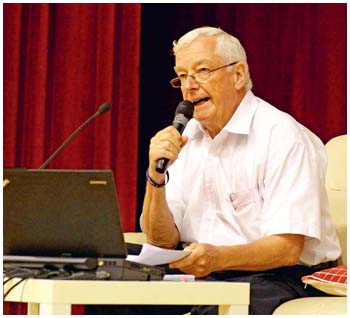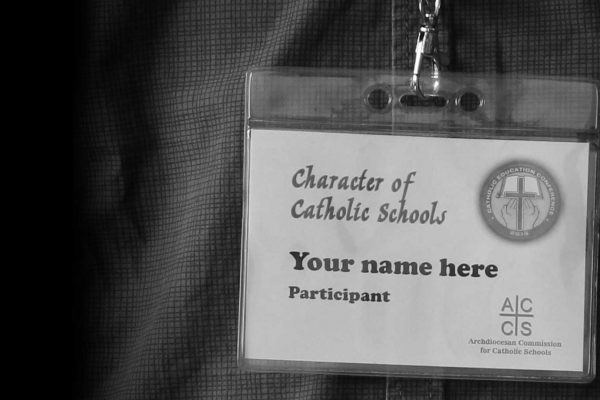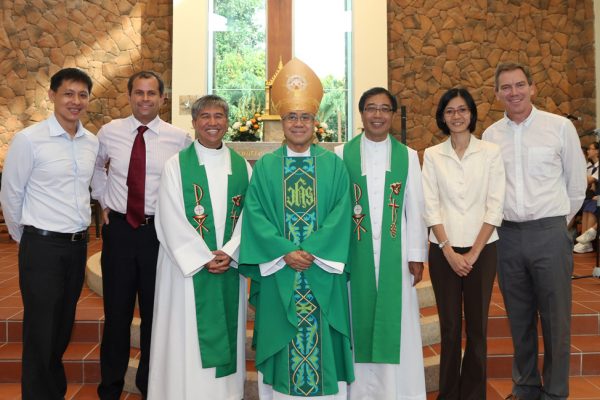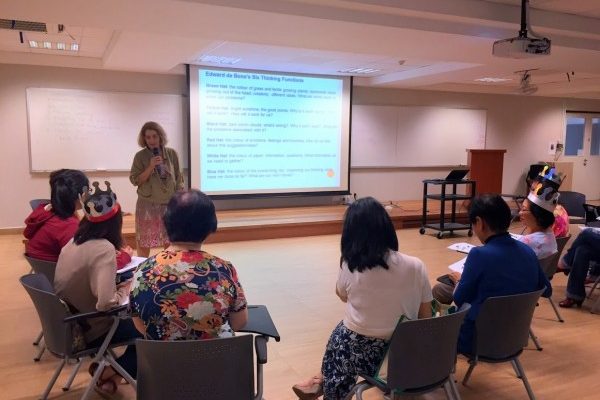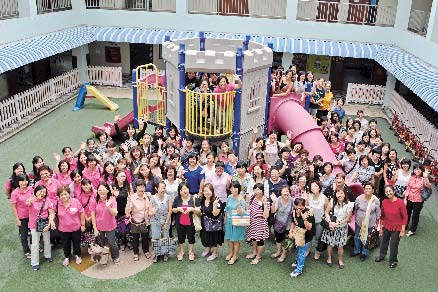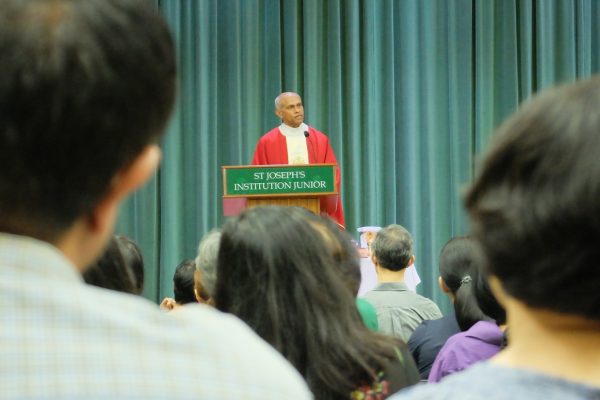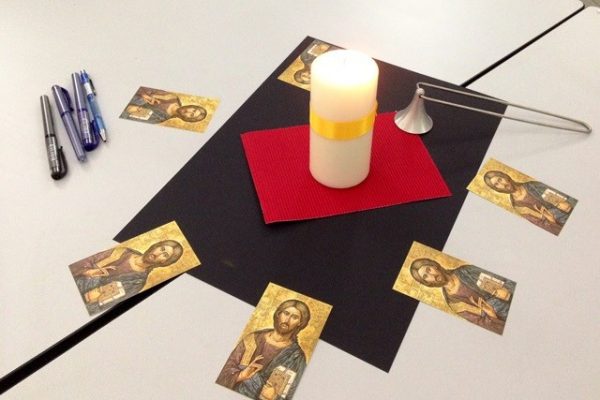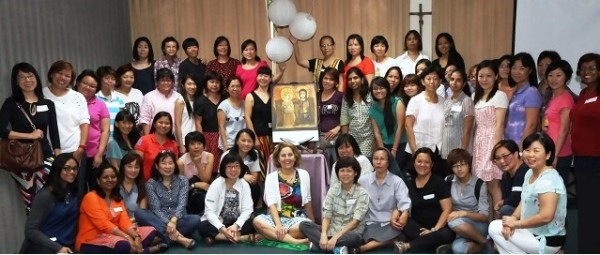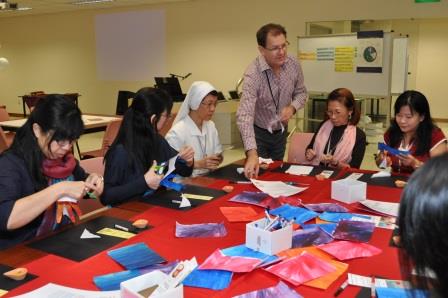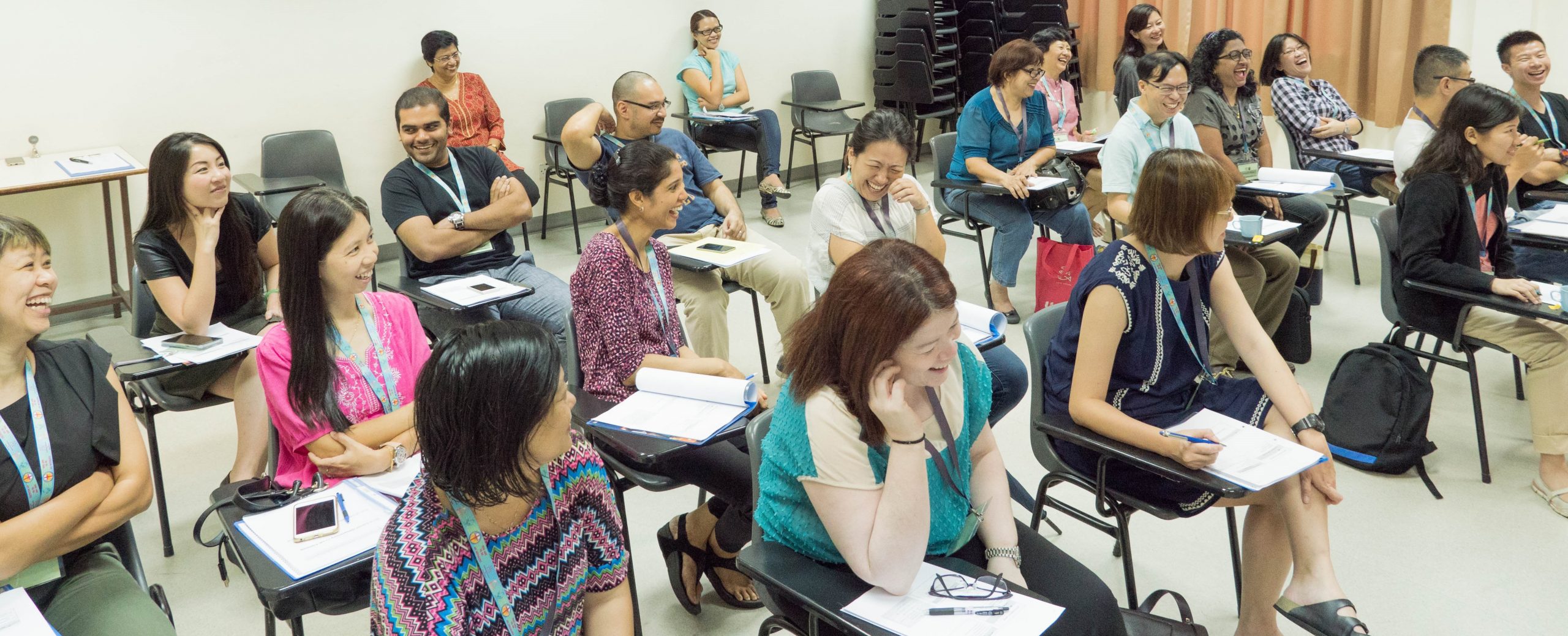
School Chaplaincy Team training empowers members to reach out to students
In April, ACCS conducted the yearly School Chaplaincy Team (SCT) training for Catholic teachers and members. We look at the highlights of the events, and hear from some of the participants themselves.
The annual ACCS-led training programme for local Catholic School Chaplaincy Teams held its eighth run in April 2016. Over the course of four sessions – held on 7, 8, 14 and 15 April – 19 participants learned more about the skills they need for their ministry in the schools.
During the programme, Montfort Supervisor of Schools Brother Dominic Yeo-Koh provided an overview of the School Chaplaincy Team (SCT) initiative, and the roles it plays within the school community. The mission of a chaplaincy member is to bring God’s presence to all students and staff in the school, and listen deeply to their thoughts and problems.
Since its conception in 2009, the SCT training programme has benefited more than 400 participants, mainly from schools and parishes.
One of this year’s participants was St Stephen’s School parent volunteer Anastasia Xavier. Having served as a volunteer for 12 years, she found the training informative as it made her more aware of the challenges in the school environment. The passion of the fellow chaplaincy members she met during the training also made a great impression on her.
Sharing experiences and knowledge
ACCS invited facilitators to the programme to share their expertise and experiences on various topics. Lesley Goonting, who works for the chaplaincy team in CHIJ Our Lady of Good Counsel, showed in her presentation, the diverse models of Chaplaincy teams currently operating in Singapore. Participants also learned from her the three ‘Cs’ in chaplaincy ministry: Connecting, Collaborating and Building Communities.
Principal of CHIJ St Theresa’s Convent Pauline Wong helped participants better understand the complex school environment today. She prompted a reflection on the different circumstances that affect students, and the implications they can have for the chaplaincy’s work. For example, in view of the widening income gap in Singapore, would chaplaincy members be able to identify needy students so assistance can be offered to them? She also covered some of the challenges Catholic schools face today.
Getting to know the youths is the first step in helping them. Michelle Soliano-Lew emphasized in her presentation that in order to engage youths, Chaplaincy members must get to know their family background, their language and the trends they follow. She also tackled the major issues the youths face today, reminding the participants that they must become models for the youths in building their character.
Lasallian Brother Collin Wee then showed how psychological growth plays a fundamental role in the shaping character of students. He presented real cases to illustrate how a specific moment can have a huge impact on a person’s psychological well-being. As Brother Collin explains, the purpose of correcting the teenagers is not to make them feel bad, but to help them discover a better way to do something. He also identified some mistakes in parenting methods.
Gaining a new perspective
At the end of the training programme, several participants have expressed positive feedback at the wide range of topics discussed. “I found the training enlightening, as the speakers were from various backgrounds,” said Gerald Kong, who joined the SCTs in St Gabriel’s Primary and Secondary schools earlier this year. “It was good to be exposed to the beauty and complexity of chaplaincy work from different perspectives.”
Gerald was also appreciative of the openness to questions and doubts at the programme. It reminded him that chaplaincy is God’s work, and a member should allow himself to be guided by God and trust Him in guiding them the right direction.
Participant Jeremy Fernandez, who is a new member of Maris Stella High School’s chaplaincy team, said that the training was useful as it defined the roles and responsibilities of a chaplaincy team clearly. “Prior to this, I was not clear what it meant to be in the team,” he added. “I found the speakers very engaging.”
Jeremy hopes that more Catholic teachers like him will be willing to join a chaplaincy team and work towards building the Kingdom of God along with their education mission.


